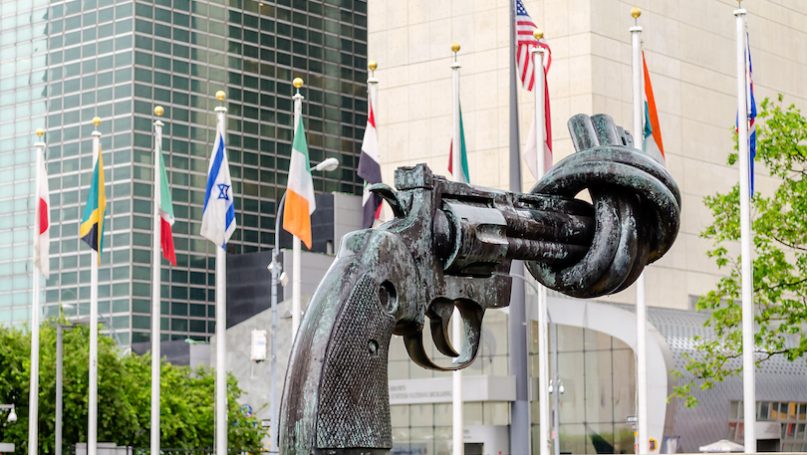
This feature is part of the online resources to accompany the textbook Foundations of International Relations.
Liberals view human beings as innately good and believe peace and harmony between nations is not only achievable, but desirable. Immanuel Kant developed the idea in the late eighteenth century that states that shared liberal values should have no reason for going to war against one another. In Kant’s eyes, the more liberal states there were, the more peaceful the world would become, since liberal states are ruled by their citizens and citizens are rarely disposed to desire war. This is in contrast to the rule of kings and other non-elected rulers (who today we may call dictators or autocrats), who frequently have selfish desires out of step with citizens and are typically quicker of mind to make decisions that would send ordinary people into danger. Kant’s ideas have resonated and continue to be developed by liberals, most notably in the democratic peace theory which posits that democracies do not go to war with each other – for the very reasons Kant outlined. To take this idea further, the theory argues that the more democracies there are, the more peace there will be in the international system. A common misunderstanding is often found here: democratic peace theory does not mean that war will end, but that its occurrences will shrink in number over time as more liberal democracies emerge. It also does not exclude the fact that liberal democracies will sometimes go to war with illiberal/non-democratic states for perceived security reasons – an example of which can be seen in the two US-led invasions of Iraq in 1991 and 2003.
Liberals do not just base their arguments on the spread of democracy. They also focus on two key elements of interaction between nation-states: trade and international organisations. For liberals trade is how states, and their peoples, interact during times of peace. They do this by exchanging products and services back and forth, often things that other states do not possess. This is a positive-sum interaction for both parties and inevitably also leads to the sharing of culture, ideas and the movement of people due to the literal and figurative pathways that are opened between nations. Different cultures have been shown to have been trading since historical records began thousands of years ago. Yet we have only witnessed international organisations becoming a permanent structural component of the global system in the twentieth century, principally with the establishment of the United Nations in October 1945, although there were notable, and largely unsuccessful, earlier attempts at using organisations to establish order on a more limited scale. For liberals, international organisations provide a second element that underlines their theory. Simply by having a permanent ‘big table’ around which to interact and conduct diplomacy – and in the modern era there are many tables of this kind at regional and global levels – states can find ways to solve disputes. This lessens the need for war and provides a forum for diplomacy which, although rooted in compromise, can offer solutions that are acceptable to those who are in arbitration. International organisations are, therefore, central to the modern liberal account of International Relations.
It is no surprise that the liberal account is one that points towards a world of peace and harmony, and this has always been the case for liberals, who see that as their desired end goal for the global system.
Text adapted from McGlinchey, Stephen (2022) Foundations of International Relations. London: Bloomsbury.
For much more on liberalism and other theories, you can download the free textbook, International Relations Theory.
Below is a collection of freely accessible multimedia and textual resources that help unpack, and explain the importance of liberalism to International Relations.
Getting started with liberalism
Engaging with liberalism
Introducing Liberalism in International Relations Theory – article
World Politics 2007: Liberalism – podcast
Global justice online resources – website
Theory Talk with Michael Doyle – article
Theory Talk with Robert Keohane – article
Liberal World Order, R.I.P. – article
Liberalism, between War and Peace An Interview with Michael Doyle – article